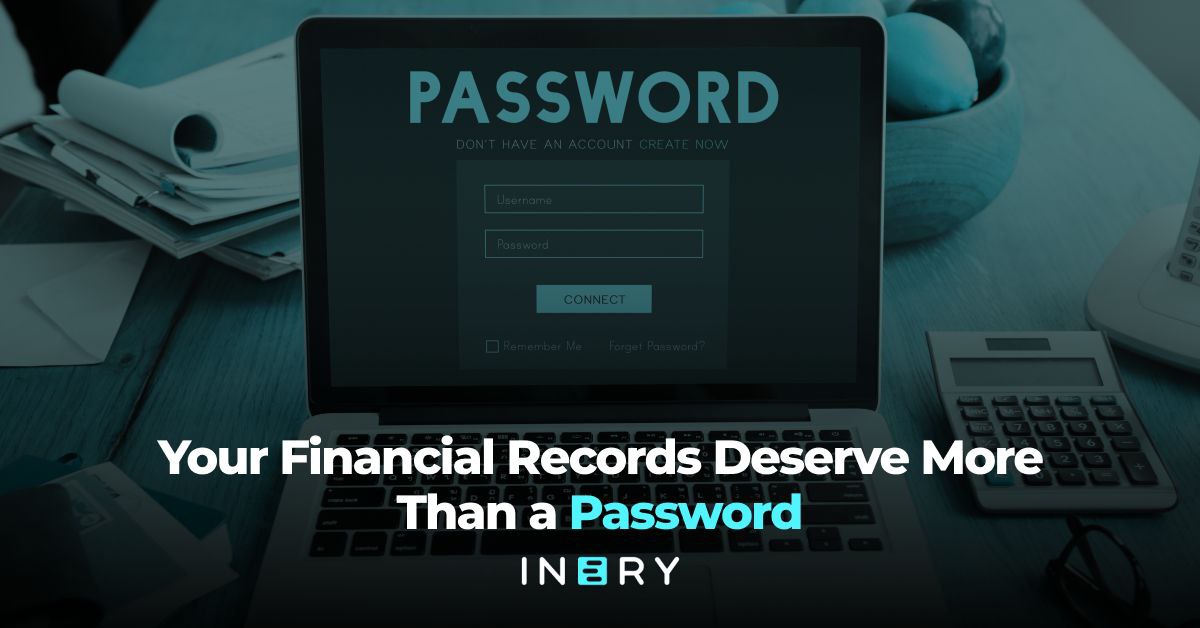Imagine this: Wanda, a diligent professional, logs into her bank account one morning only to find her savings wiped out. Thousands of dollars – gone. Turns out, her "strong" password wasn’t strong enough. Her financial records were compromised, leaving her not just broke, but emotionally shattered. This is why protecting your financial data is non-negotiable. Keep reading if you don’t want to end up like Wanda.
Understanding Financial Records
Think of financial records as your money’s diary – a detailed account of where it’s been, what it’s doing, and where it’s headed. These records aren’t just about numbers; they include bank statements showing your spending habits, tax returns detailing your income, investment portfolios tracking your growth, and loan agreements outlining your obligations.
For example, let’s say Sam is applying for a mortgage. His bank statements provide proof of income, while his tax returns show financial stability. His credit card records and loan agreements help the lender evaluate his risk. Together, these documents paint a picture of Sam’s financial health, guiding decisions about his future.
Financial records are indispensable for budgeting, planning, and preparing for life’s uncertainties. They tell you if you’re ready to buy that dream home or if you need to scale back on avocado toast for a while.
The Significance of Protecting Financial Data
Now imagine if those records fall into the wrong hands. Your spending habits, income details, and even your debts are exposed to someone who shouldn’t have access. It’s not just uncomfortable; it’s dangerous.
Take Amy, for instance. Her financial data was stolen in a phishing scam. Within weeks, a criminal used her credit card to rack up debt and even attempted to open a fraudulent loan in her name. It took months to recover, and her credit score took a hit.
For businesses, the stakes are even higher. A breach doesn’t just mean financial loss. It can mean losing customers' trust forever. Think of the infamous Target data breach in 2013. Hackers stole millions of credit card details, leading to a PR disaster, legal battles, and financial penalties.
Protecting financial records isn’t just about avoiding disaster, it’s about safeguarding your future. Whether it’s your family’s security or your company’s reputation, the integrity of this data is the foundation of financial stability. Without it, you’re not just risking money. You’re risking trust, opportunities, and peace of mind.
Evolution of Financial Data Protection
Historically, financial records were stored in physical formats: ledgers, paper statements, and filing cabinets. Security relied on physical measures: locked drawers, secure rooms, and restricted access. With the advent of digital technology, these records transitioned to electronic formats, introducing new security challenges.
Early digital protection methods included basic password authentication and encryption. As cyber threats evolved, so did security measures. Multi-factor authentication (MFA), biometric verification, and advanced encryption protocols became standard practices. Financial institutions invested heavily in cybersecurity infrastructure to combat increasingly sophisticated attacks.
The Current Landscape of Financial Data Security
Today, while many institutions employ resilient security measures, the reliance on passwords and traditional authentication methods remains prevalent. However, these methods are increasingly inadequate against modern cyber threats. Phishing attacks, malware, and social engineering tactics have rendered passwords vulnerable, leading to a surge in data breaches.
For instance, in 2023, the Consumer Financial Protection Bureau (CFPB) suffered a significant data breach when a former employee improperly transferred confidential information, including data on approximately 256,000 consumers and 45 financial institutions, to a personal email account. This incident exposed critical vulnerabilities in traditional security measures and emphasized the urgent need for more resilient and secure data protection systems.
The Consequences of Inadequate Data Protection
Failure to adequately protect financial data can have dire consequences:
Identity theft: Stolen financial information gives criminals the keys to your personal identity. They can open credit cards in your name, apply for loans, or even file false tax returns to claim refunds. The aftermath? Hours, if not months, spent untangling fraudulent activities, all while dealing with the emotional stress of having your identity exploited.
Financial loss: When unauthorized access occurs, the financial damage can be immediate and severe. Bank accounts can be emptied, credit card balances maxed out, and unauthorized loans taken in your name. Beyond the monetary toll, victims often face the uphill battle of proving the fraud to regain control over their finances.
Reputational damage: For businesses, a data breach can be catastrophic. Customers expect their personal and financial information to be safe; a breach not only undermines trust but also tarnishes the company’s brand. In competitive markets, losing customer confidence can mean losing business entirely, sometimes permanently.
Legal consequences: Governments worldwide are cracking down on data protection failures. Non-compliance with regulations such as GDPR or CCPA can result in steep fines, costly lawsuits, and mandatory audits. Beyond the financial hit, legal issues can also drag on for years, draining resources and focus from the business.
Introducing Inery: A Paradigm Shift in Data Security
Traditional security measures are struggling to keep pace with the sophisticated threats of today’s digital world, but Inery offers a groundbreaking solution. By leveraging advanced cryptographic techniques and decentralized data management, Inery takes data security to the next level, ensuring your financial records remain secure, private, and entirely under your control.
What sets Inery apart is its ability to eliminate single points of failure. By distributing data across a secure network, the risk of attacks or breaches is significantly minimized. On top of this, state-of-the-art encryption safeguards your information at every stage, whether it’s stored or in transit. But Inery doesn’t stop at protection; it empowers users to take control. You manage who accesses your data, monitor its usage, and set permissions that suit your needs.
Another hallmark of Inery’s approach is its commitment to data integrity. Once recorded, your data is locked in its original state, ensuring it cannot be altered or tampered with. This level of reliability and transparency offers peace of mind, whether you’re managing personal finances or safeguarding sensitive business information. Inery is not just a security solution. It’s a transformative way to protect and control the data that matters most.
Conclusion
Cyber threats are ever-evolving. What protected you yesterday might not protect you tomorrow. However, relying solely on passwords and traditional security measures, definitely, is no longer sufficient. Your financial records deserve a security solution that not only protects but also empowers you with control and transparency. Inery's innovative approach offers a reliable and user-centric solution, ensuring that your financial data remains secure, private, and under your command.

Inery•
10 months ago
What is a Data Lake?
What is a data lake, and why do businesses rely on them? Learn how they store vast amounts of raw data, their advantages and challenges, and how Inery’s decentralized approach is transforming data management. ...READ MORE

Share

Inery•
1 year ago
Exploring the Potential of Blockchain in Voting Systems
Explore how blockchain technology could revolutionize voting systems, enhancing transparency and accessibility. Discover Inery's approach to tackling the current challenges faced by electoral systems. ...READ MORE

Share

Inery•
1 year ago
The Impact of Blockchain on Data Privacy in AI Systems
Explore how blockchain enhances data privacy in AI systems. Learn about historical data privacy, AI's security challenges, and Inery's innovative solutions for decentralized data management. ...READ MORE

Share

Inery•
3 years ago
Inery’s Peer-to-Peer Network
Inery’s blockchain network: All you need to know. ...READ MORE

Share
Most popular today


-1700122570.png)
